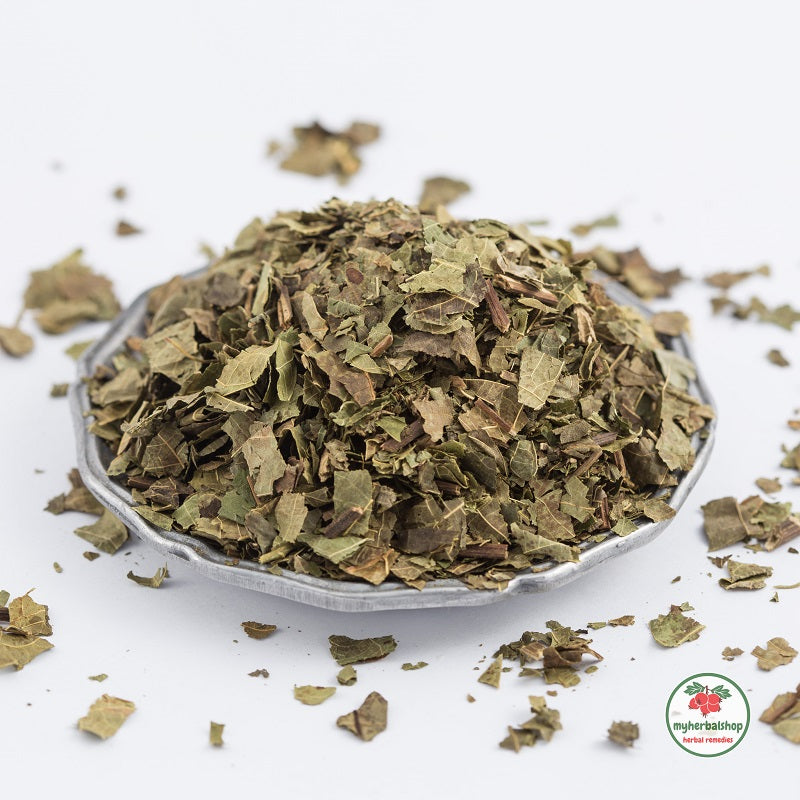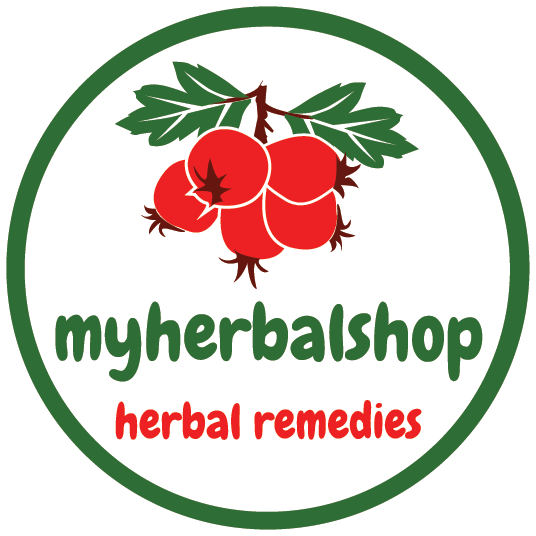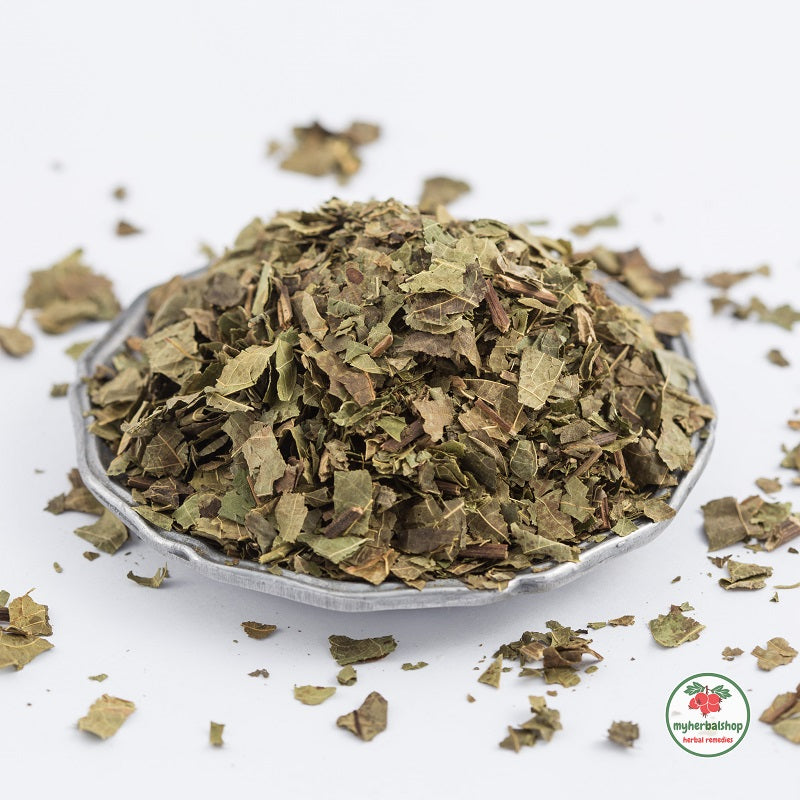Myherbalshop
Walnut Leaf Loose Leaf Tea 100g
Walnut Leaf Loose Leaf Tea 100g
Elérhető készlet: 15 db
Couldn't load pickup availability
WALNUT LEAVES – Juglandis Folium
Parts used: Leaves
The leaves are picked in June and July, and dried rapildy at a temperature of 40 ˚C.
Dried leaves are used for infusions, tinctures and liquid extracts. Each must contain at least 2 per cent of the flavonoid, hyperoside.
Constituents
Walnut leaves are rich in healing tannins. Napthaquinone, juglone, and the flavonoids, hyperodise and quercetin are also present, togehter with ascorbic acid and essential oil.
Medical uses
Because the plant’s nut is similar in shape and appearance to a human brain, it was traditionally believed that eating it would help to improve concentration and memory.
However, the real medicinal value of walnut stems mainly from its leaves, with their astringent, healing tannins and antibacterial juglone.
Leaf preparations are used to treat diarrhoea and intestinal infections, and are reputed to boost immunity and improve the circulation.
Walnut leaf can also strengthen the protein, keratin, found in the surface of the skin. It is therefore an effective treatment for problems, such as acne, eczema and ulcers.
Preparation and dosage:
For internal use
To treat diarrhoea, disorders involving the bacteria of the intestinal tract.
Infusion: Put 10g of dried leaves into 1 cup of boiling water. Leave to infuse for 15 minutes and strain. Drink 3-5 cups a day before meals.
For external use
To treat acne, eczema, skin infections and ulcers
Creams, gels, soaps: (containing 1-3% tincture or liquid extract). Use one of these preparations regularly on affected areas.
IF SYMPTOMS PERSIST, CONSULT A DOCTOR
CAUTIONS:
-although walnut has no known toxic side effects, it is not advisable to exceed the recommended dosage
“Reader’s Digest: Nature’s Medicines”


